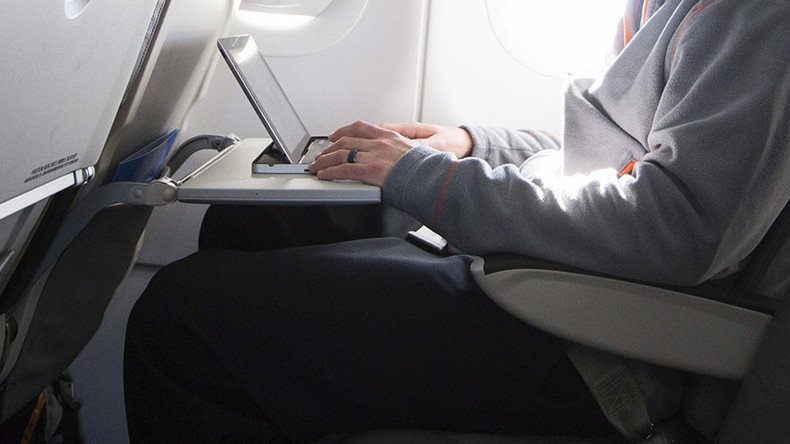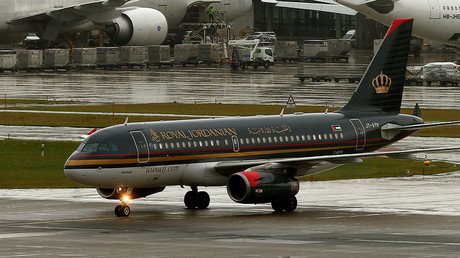‘Severe distortions’: Aviation chief blasts US-UK electronics ban

The international association of airlines has come out against the ban on laptops and other electronics aboard direct flights from airports in mainly Muslim countries, enacted by both the US and the UK, calling it confusing and harmful to commerce.
“The current measures are not an acceptable long-term solution to whatever threat they are trying to mitigate,” CEO of the International Air Transport Association (IATA), Alexandre de Juniac, said on Tuesday, addressing the Montreal Council on Foreign Relations in Canada.
Last week, the Trump administration informed airlines from Egypt, Jordan, Kuwait, Morocco, Qatar, Saudi Arabia, Turkey and the United Arab Emirates that large electronic devices will not be allowed in the cabins of direct flights from 10 airports in those countries. Anything bigger than a cellphone will have to travel as checked baggage for the time being, US authorities said.
Britain followed suit shortly thereafter but left Emirates, Kuwait, Morocco and Qatar off the list. The measures have baffled the airlines and irked business fliers.
“The current situation is not acceptable and will not maintain the all-important confidence of the industry or of travelers. We must find a better way,”de Juniac said on Tuesday. “Surely there must be a way to screen electronic equipment effectively at airport checkpoints.”
IATA was struggling to understand the effectiveness of the measures, but the “commercial distortions they create are severe,” de Juniac said, calling for more information-sharing with the airlines, so they would understand the governments’ reasoning behind the electronics ban and other measures.
“Airlines don’t want access to state secrets,” he said. “But if airlines understand the outcome governments want, they can help with their real world operational experience to deliver the result effectively and efficiently.”
Sharing intelligence between governments and the airline industry, he said, was the only way “to stop terrorists before they get near an airport, let alone aircraft.”
Here's how you work on the plane in the "Laptop Ban" era: pic.twitter.com/beUMbEMJRZ
— Dr. Tommy Weir (@tommyweir) March 28, 2017
While the governments in Washington and London have declined to disclose the details of what prompted the ban, anonymous officials told reporters that a plot involving explosives hidden in a hollowed-out iPad was one of the factors.
Bottled water and other liquids in quantities over 3 ounces (100 ml) were banned from flights in 2006, with governments citing likewise unspecified threats of liquid explosives. Al-Qaeda documents detailing a liquid bomb plot were cited as evidence several years later. That ban is still in effect.
“We call on governments to work with the industry to find a way to keep flying secure without separating passengers from their personal electronics,” said de Juniac.













